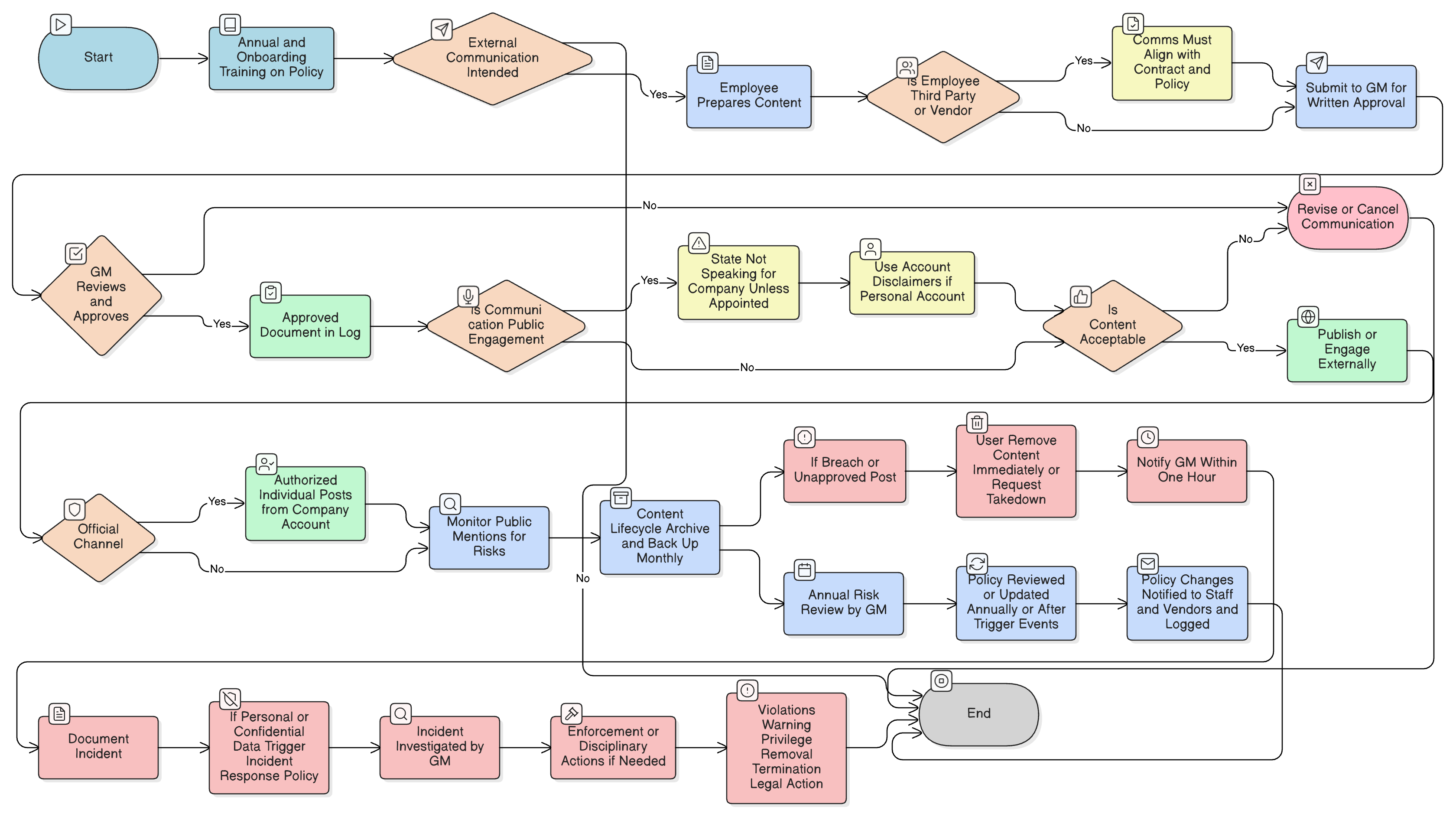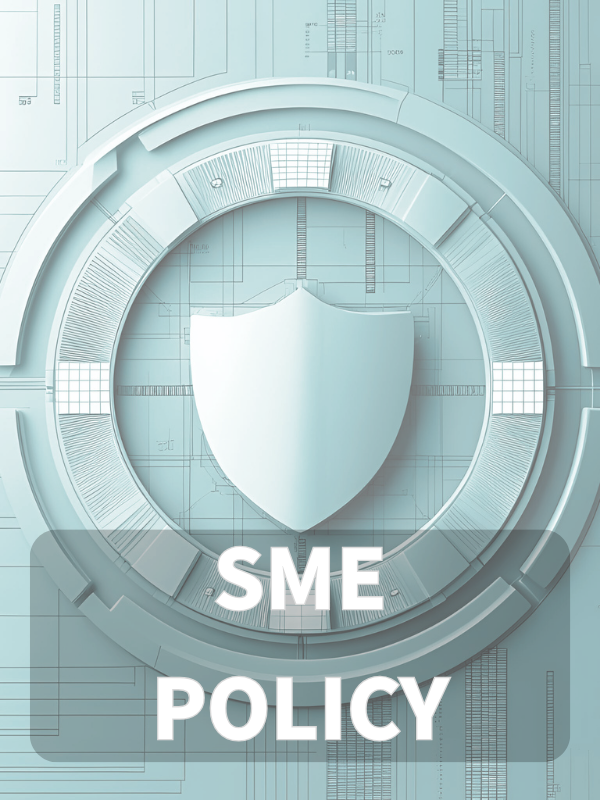Overview
This SME-focused policy establishes clear rules for social media posts and all external communications about the company, requiring approvals for public statements, defining acceptable and prohibited content, and outlining procedures for monitoring, training, incident response, and compliance in line with ISO/IEC 27001:2022 and other regulations.
Reputation & Compliance
Safeguard company reputation and meet legal standards through structured communication and social media guidelines.
Clear Roles & Approvals
Define responsibilities, ensuring only authorized, approved communications are shared publicly.
SME-Friendly Controls
Designed for SMEs, assigns policy oversight to the General Manager where no CISO/SOC exists.
Incident Response Integration
Integrates content breach handling with established incident response and reporting processes.
Read Full Overview
Policy Diagram

Click diagram to view full size
What's Inside
Scope and Rules of Engagement
Acceptable vs. Prohibited Content
Role-Based Approvals
Content Lifecycle & Monitoring
Incident Handling for Breaches
Annual Risk Review & Training
Framework Compliance
🛡️ Supported Standards & Frameworks
This product is aligned with the following compliance frameworks, with detailed clause and control mappings.
Related Policies
Acceptable Use Policy-SME
Defines acceptable behavior when using communication platforms, including social media access during work hours.
Information Security Awareness And Training Policy-SME
Ensures staff are trained to identify the risks of oversharing, phishing, or reputational threats online.
Data Protection And Privacy Policy-SME
Ensures personal and customer data is not shared in external communications, aligning with GDPR and other legal requirements.
Incident Response Policy-SME
Governs the response to accidental public disclosure, online threats, or reputational attacks resulting from social media misuse.
Legal And Regulatory Compliance Policy-SME
Establishes the organization’s broader legal and contractual obligations when sharing content publicly.
About Clarysec Policies - Social Media and External Communications Policy - SME
Generic security policies are often built for large corporations, leaving small businesses struggling to apply complex rules and undefined roles. This policy is different. Our SME policies are designed from the ground up for practical implementation in organizations without dedicated security teams. We assign responsibilities to the roles you actually have, like the General Manager and your IT Provider, not an army of specialists you don't. Every requirement is broken down into a uniquely numbered clause (e.g., 5.2.1, 5.2.2). This turns the policy into a clear, step-by-step checklist, making it easy to implement, audit, and customize without rewriting entire sections.
Personal & Professional Boundaries
Covers company mentions from personal accounts and outside work hours, protecting your SME identity at all times.
Content Approval & Archiving
Requires pre-approval for external posts and maintains a log of all approved activities, creating a trackable audit trail.
Frequently Asked Questions
Built for Leaders, By Leaders
This policy was authored by a security leader with 25+ years of experience deploying and auditing ISMS frameworks for global enterprises. It's designed not just to be a document, but a defensible framework that stands up to auditor scrutiny.
